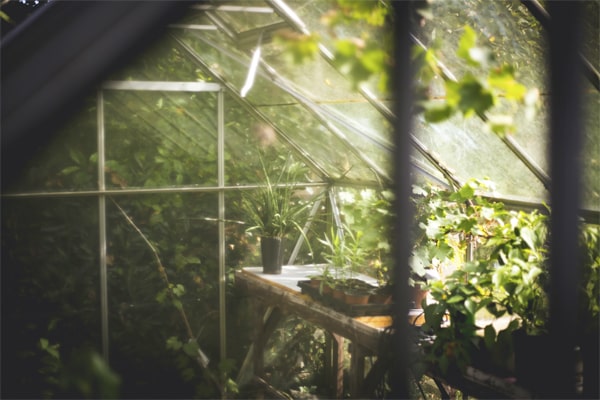Transform Your Backyard into a Zen Oasis -Top 10 Plants for Serenity
In the hustle and bustle of modern life, finding a haven of tranquility is more important than ever. Your backyard can be that sanctuary, a personal retreat to unwind and reconnect with nature. The essence of a Zen garden lies in its simplicity and harmony, offering a peaceful escape from the chaos of daily life. This peaceful oasis can be achieved with a thoughtful selection of plants, each contributing to the overall serenity. Imagine stepping into your garden and being greeted by the gentle swaying of leaves and the soft harmony of nature. A Zen garden is not just a space; it’s a journey towards tranquility, a personal alcove where every worry melts away.
The Essence of a Zen Garden
Zen gardens are rooted in simplicity, naturalness, and austerity. They are not just gardens; they are a form of art that brings balance and serenity. The key is in understanding that every element has a purpose, creating a space that isn’t just visually pleasing but also spiritually soothing. In a Zen garden, each stone, water feature, and plant is carefully chosen and placed with intention. The goal is to create a minimalist landscape that captures the natural beauty and tranquility of nature. The balance of these elements symbolizes harmony and invites contemplation. In cultivating a Zen garden, you are not just planting; you are creating a sanctuary for the soul.
Top 10 Plants for a Serene Backyard
1. Bamboo:
A symbol of flexibility and resilience in Zen culture. Its gentle rustling in the wind brings a calming effect. Bamboo represents strength and can teach us about resilience and standing tall through life’s challenges. It grows quickly, reminding us of life’s constant evolution. Bamboo’s slender form and green hue add a vertical dimension to the garden, creating an elegant and peaceful ambiance. Care for bamboo involves regular watering and pruning, ensuring it doesn’t overrun other serene elements in your garden.
2. Japanese Maple:
With its delicate leaves and stunning fall colors, it adds a touch of elegance. The leaves of the Japanese Maple change colors throughout the seasons, symbolizing life’s transitions. Its slow growth and graceful shape make it a focal point for meditation and reflection. This tree prefers partial shade, making it an excellent choice for a Zen garden’s quiet corner. Care involves protecting it from harsh elements, embodying the Zen principle of nurturing and care.
3. Ferns:
Their lush greenery creates a cool, primordial ambiance. Perfect for shady spots. Ferns add a prehistoric aspect to your garden, reminding us of nature’s age and wisdom. They require minimal care, thriving in damp, shady areas, embodying the Zen principle of finding strength in adversity. Their delicate fronds move gracefully in the breeze, adding a sense of movement and life. Ferns are excellent ground cover, filling in spaces with their rich green texture.
4. Moss:
- It brings a carpet of green, symbolizing peace and tranquility. Plus, it’s low maintenance. Moss requires little sunlight, flourishing in shaded areas, making it perfect for creating a Zen-like ambiance. Its velvety texture invites touch, connecting us physically to the garden. Moss absorbs sound, contributing to the garden’s quiet atmosphere. It requires minimal upkeep, just enough moisture and shade, reinforcing the Zen concept of simplicity.
5. Water Lilies:
- Incorporating water with these floating beauties adds a reflective, meditative quality. The sight of water lilies floating serenely on water brings a sense of calm and balance. These plants require a water feature, which adds a soothing sound and movement to your garden. Water lilies bloom in various colors, symbolizing purity and peace. They help oxygenate the water, creating a healthy environment for other aquatic life. Care includes regular pruning and ensuring they have enough space to float freely.
6. Lavender:
- Its scent is renowned for relaxation and stress relief. Ideal for a garden’s edge. Lavender’s fragrance is therapeutic, reducing stress and promoting a sense of calm. This plant attracts pollinators, adding a layer of life and activity to the garden. Lavender prefers full sun and well-drained soil, embodying resilience and adaptability. The purple hue of its flowers adds a splash of color, contrasting beautifully with the greens of a Zen garden.
7. Gardenia:
- With their creamy white flowers and soothing aroma, gardenias are a delight. The scent of gardenias is known to enhance mood and create a sense of well-being. These plants require a bit more care, thriving in well-drained, acidic soil and partial shade. The delicate nature of gardenia blossoms symbolizes the Zen principle of mindfulness and attention to detail. Gardenias bloom from spring to summer, offering a seasonal reminder of change and renewal. Regular pruning and care for gardenias reflect the Zen practice of continuous improvement and dedication.
8. Tea Plant (Camellia sinensis):
- Connect with the Zen ritual of tea. The tea plant adds a functional element to your Zen garden, linking it to the ancient practice of tea-making. Growing your tea leaves can be a meditative practice, connecting you to the garden on a deeper level. This plant prefers well-drained, acidic soil and partial shade, similar to the gardenia. The process of harvesting and preparing the leaves can become a mindful activity. Camellia sinensis blooms with delicate flowers, adding beauty to the functionality.
9. Lotus:
- A symbol of purity and enlightenment, thriving in water gardens. The lotus flower is deeply rooted in Zen symbolism, representing the emergence of beauty and clarity from murky waters. This plant requires a pond or water feature to enhance the garden’s meditative qualities. The blooming of the lotus is a sight to behold, offering a moment of awe and inspiration. Lotus plants need full sun and a calm water environment to thrive. Caring for the lotus involves maintaining clean and healthy water, symbolizing the importance of a pure environment for growth.
10. Cannabis:
- Moving into a detailed discussion next. Cannabis, when grown responsibly and legally, can add an unconventional element to your Zen garden. It symbolizes the breaking of barriers and embracing of natural remedies. Cannabis plants have a distinctive appearance, with their serrated leaflets adding a unique visual texture to the garden. Growing cannabis requires understanding its specific needs, like sunlight and soil type, reflecting the Zen principle of knowledge and adaptation. The use of auto-flowering seeds simplifies the growing process and is suitable for those new to gardening or with limited time.
Special Focus: Cannabis in Your Zen Garden
Cannabis, often associated with relaxation, can be a unique addition to your Zen garden. It’s important, though, to first check your local laws regarding its cultivation. Including cannabis in your Zen garden can be a nod to its medicinal and therapeutic uses. This plant requires attention and care, making its cultivation a mindful practice. When placed thoughtfully, cannabis can complement other plants, creating a diverse and harmonious space. Remember, the goal is to create a balanced and serene environment, and each plant, including cannabis, plays a role in this.
The Benefits of Auto-Flowering Cannabis Seeds
Auto-flowering marijuana seeds are ideal for beginners. These plants are hardy and less demanding, perfect for those who want to cultivate serenity without the fuss. Auto-flowering plants typically require less maintenance and are more resilient to environmental changes. This characteristic makes them suitable for gardeners who wish to focus more on the spiritual aspects of gardening. They can adapt to various light conditions, reducing the need for strict light management. The smaller size of auto-flowering plants makes them a discreet addition to your Zen garden. They mature quickly, allowing for a quicker harvest and the opportunity to reflect on the cycle of growth and renewal. Auto-flowering cannabis plants offer a practical and straightforward way to incorporate this unique plant into your garden.
READ MORE-7 Factors To Match The Bar Of A Reputable HHC Gummies Vendor
Integrating Cannabis Aesthetically into the Garden
Cannabis plants can blend seamlessly with other Zen elements. Their distinctive leaf shape can add a unique visual element to your serene space. The key is to integrate them in a way that maintains the balance and aesthetics of your garden. Consider placing cannabis plants near elements like rocks or water features to create a harmonious look. They can be grown in containers or planted directly into the ground, depending on your garden’s design. The height and structure of cannabis plants can provide a contrast to lower-lying plants like moss and ferns. Use cannabis plants to create a focal point or to add depth to your garden’s layout. Remember, the goal is not just to grow a plant but to weave it into the tapestry of your Zen garden.
Design Tips for a Zen-Inspired Backyard
Plan your layout with simplicity in mind. Choose accessories that complement the natural environment. Pathways should encourage a peaceful walk, meandering gently through the garden. The design of a Zen garden is as much about the spaces as it is about the elements within. Use natural materials like stone and wood to maintain an organic feel. Water features should be simple and unobtrusive, enhancing the sense of tranquility. Create areas for sitting and reflection, inviting you to spend time in your garden. Consider the views from different angles and create vistas that encourage contemplation. Balance is key, so ensure that no single element dominates the garden. The garden should evolve naturally over time, reflecting the ongoing journey of self-discovery and inner peace.
Regular tending of your garden is not just about maintenance; it’s a meditation practice. Embrace this routine as part of your journey to inner peace. Gardening tasks like pruning, weeding, and watering can be therapeutic. They offer a chance to slow down and connect with nature. Pay attention to the needs of each plant, and they will thrive under your care. Regular maintenance also keeps your garden looking its best. Over time, you’ll develop a deeper understanding of your garden and its inhabitants. Your Zen garden is a living, breathing space that changes with the seasons. Embrace these changes as part of its natural beauty.
Conclusion
In conclusion, creating a Zen garden in your backyard is more than just landscaping; it’s a deeply personal journey toward tranquility and balance. Each element, from the soothing sway of bamboo to the reflective beauty of water lilies, plays a significant role in crafting a serene oasis. Even unconventional plants like cannabis, when integrated responsibly, contribute to the garden’s harmony and purpose. Embracing the principles of simplicity, naturalness, and mindfulness, a Zen garden becomes a sanctuary for both the mind and soul. As you cultivate and maintain this space, it evolves into a living representation of inner peace and resilience, offering a unique and restorative experience with every visit.
Additional resources
For those interested in creating a Zen garden, there are several excellent online resources that provide comprehensive guides and tips. Here are three authoritative websites that can help you get started:
- Garden Design: This resource offers insights into creating a space for quiet contemplation in your backyard. It explores the traditional aspects of a Zen garden, such as minimal dry landscapes composed of natural elements like rock, gravel, and wood, and also suggests ways to tailor these principles to suit personal tastes and styles. For more information, visit their website here.
- Millcreek Garden: This site provides practical advice for creating a Zen or tranquility garden, focusing on sensory experiences that allow visitors to feel and become one with nature. It discusses the selection and placement of trees, shrubs, grasses, and other elements essential for crafting a serene outdoor space. Additional tips on choosing plants and incorporating accessories are also available. For more detailed guidance, check out their website here.
- Planet Natural: This guide is ideal for understanding the basics of what a Zen garden is and offers helpful tips and ideas to get started. It includes information on the unique aspects of Zen gardens, such as their representation of nature through carefully designed landscapes of rocks, gravel, sand, and sometimes moss or plants. For more insights into Zen garden creation, visit their website here.
Each of these resources provides a unique perspective on Zen garden design, from traditional approaches to more modern interpretations, ensuring that you have a wealth of information to start creating your own serene backyard retreat.
Don’t miss out on Following SuperbHub for more updates on celebrity entertainment, biography, articles, Health, and news.
Recent News
-

Duane Chapman Is Now Engaged To Girlfriend Francie Frane, Had Lost Wife 10 Months Earlier
-

Katherine Schwarzenegger Pregnant With Her First Child With Husband Chris Pratt
-

Chris Cuomo's Son Mario Tested Postive For Coronavirus
-

Kodak Black And NBA YoungBoy, Dissing One Another Via Social Media
-

Maeve Kennedy McKean, Robert F. Kennedy's Granddaughter, is Missing Along With Her Son
Entertainment
-

The Evolution of Entertainment: Online Casting Calls Redefining the Industry
-

Mamoudou Athie's Must-Watch Performances in the Movies and TV Series
-

Try These Unique Forms of Entertainment When You've Exhausted All Options
-

7 Best Movies on Netflix This Week
-

Campus Grooves: Exploring Music Festivals in American Colleges





